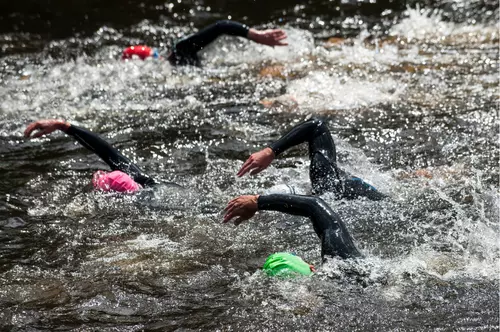This course set has a pre-requisite unit of:
- HLTAID011 Provide First Aid
- Any individual undertaking this course will be required to provide a copy of their current Inland Open Water Lifeguard Certificate or Statement of Attainment prior to training taking place.
An individual undertaking this course with Allens Training Pty Ltd will need to demonstrate the following to be eligible for entry:
- An official form of photo identification (e.g., driver’s licence, passport, or student ID).
- Physical capability to be able to meet the demands of the practical demonstration skills including:
- CPR*
- Swim 25 metres and perform a 25 metre non-contact tow of a casualty. Working as a team, extract a casualty from deep water using extraction equipment and demonstrate advanced resuscitation techniques
- Swim 10 metres and then complete a minimum 10 metre contact tow of a conscious casualty and remove the casualty from the water without assistance.
- Swim 25 metres and then retrieve an object replicating a person at the deepest part of the aquatic facility (but no greater than two (2) metres) and perform a 25-metre contact tow of an unconscious casualty, negotiating prevailing conditions and environmental hazards.
- Work as a team to extract the casualty with suspected spinal injury using spinal immobilisation extraction equipment from shallow water
- Paddle 25 metres on a non-motorised watercraft such a rescue board, paddleboard or surfboard, to rescue and assist an exhausted conscious casualty onto the board and paddle 25 metres to shore, negotiating prevailing conditions and environmental hazards
- Visual acuity to see the common visual signs and signals of a person experiencing difficulties in the water which includes “lack of movement” and ”arm waving”
- Hear the common visual signs and signals of a person experiencing difficulties in the water which includes “calling for help”
Please note: As this unit applies particularly to open water lifeguards and individuals such as outdoor recreation leaders, who complete complex water rescues, it is highly recommended that students will have a basic understanding of performing water rescues, prior to undertaking this unit. In addition, it is recommended students can swim 400 metres in less than 8 minutes.
Please note, if you plan to work as a Lifeguard, there may be minimum age, health and fitness requirements of persons employed to be performing the role of a Lifeguard. The Guidelines for Safe Pool Operation (GSPO) SV11 Lifeguard Health Assessments outlines the criteria regarding vision, hearing, epilepsy, diabetes, asthma, pregnancy and immunizations. SV12 Lifeguard Fitness Assessments outlines the criteria to ensure lifeguards are physically fit enough to perform the required tasks and to provide a measure of safety should an emergency occur that requires physical ability. There may be additional on-the-job licensing requirement for lifeguards working in NSW. Please check with your employer regarding these requirements. There may be additional on-the-job licensing requirement for pool lifeguards working in NSW. Please check with your employer regarding these requirements.
*Important note: In order to issue an accredited certificate, CPR must be performed on the floor and rescue breathing techniques demonstrated on manikins, with no exemptions.
The online learning program can be found in the student portal. Students must have access to a computer, smart phone, tablet or other electronic device with access to the internet to complete the online studies and associated assessment tasks.
Delivery mode: Online with face-to-face - The online pre-course learning and theory assessment is expected to take approximately 6 hours to complete. These timeframes are estimates. Individuals with prior experience in similar training may complete the online component in less time, while those new to the subject may need more time to complete all the learning content and theory questions.

